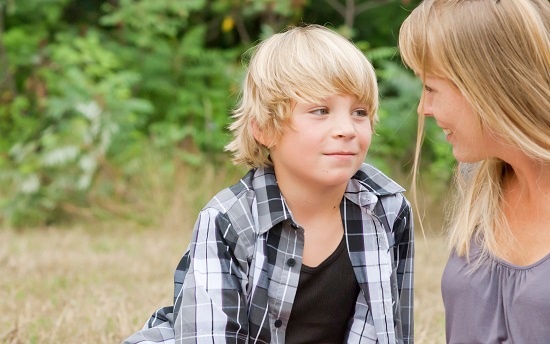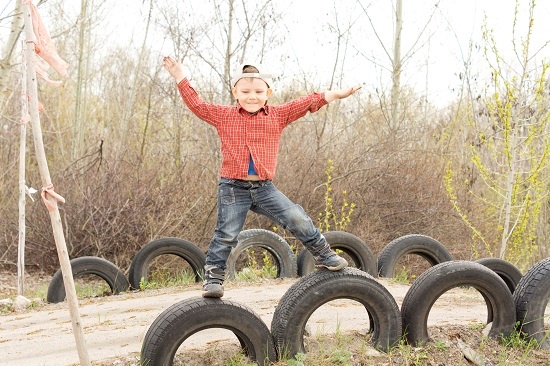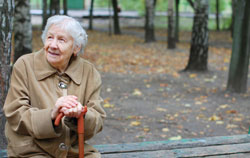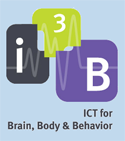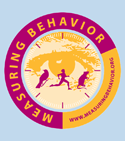It’s Friday the 13th. Together with my colleague Sandra, we took a walk around Amsterdam’s Java Island. All around us we read slogans like ‘the future has arrived’, ‘drinking water is getting scarcer’ and ‘how do we use and abuse data?’ Already a special feeling is coming over me. The future has arrived on Friday the 13th? What does that mean for our visit here in Amsterdam?
Between all the pavilions, installations, and prototypes about the future of everyday living, we easily found what we were looking for: the We Are Data - mirror room.
Jacqueline Martinali
Recent Posts
Topics: emotion recognition, FaceReader, facial expression recognition software, mirror room, remote photo-plethysmography
The End of Sitting: a tool to prevent the negative effects of sitting
Posted by Jacqueline Martinali on Apr 25, 2016
What do you do when you want to think things over? In what position or environment are you when you get the best idea ever - in the shower, pacing up and down? Riding on your bike watching people go by, or enjoying the beautiful nature around you? Do you get in motion to organize your thoughts, or can you stay still sitting on a chair? And how does that affect your work habits? How do you stay active and productive?
Topics: The Observer XT, video recording, sitting behavior, health effects, affordances
Last week I had a chat with a friend of mine whose eldest son (8 years old) was diagnosed several years ago with Autistic Spectrum Disorder (ASD). She told me about a conversation she and her husband had with a speech therapist, who explained to them that when someone asks their son a question or tells him something to do, it usually takes 7 seconds before his brain processed this information. Imagine that, 7 seconds – that’s quite a lot. In those 7 seconds many other words can be said or questions can be asked. But for this little boy it means that it is important to speak slowly and give one instruction at a time, or you will likely get little to no response, or only partial task completion.
Become and stay aware about children with autism
When there is a lack of understanding, you don’t realize that he needs this time to see the whole picture. When you have to deal with this over and over again, every single day, you can become very frustrated and annoyed by the child’s seeming failure to understand, or worse, lack of desire to listen.
Topics: The Observer XT, autism research, parent-child interaction, child, social cognition, ASD, theatre, autism
Getting outside, playing, and exercising is essential for healthy child development. It goes without saying that playing outside must be encouraged in children, especially when we realize that an estimated 80 percent of young children don’t exercise enough. The impact of playing outside on the social, motor and emotional development of children and their learning ability is immense. Therefore, it is of interest to researchers to answer the question: what makes the best playground, according to children?
Topics: The Observer XT, video observation, behavioral research, motor development, child, child development, playing behavior
5 reasons to visit the International Meeting on Simulation in Healthcare
Posted by Jacqueline Martinali on Jan 11, 2016
The 16th Annual International Meeting on Simulation in Healthcare is fast approaching, and will be held on January 16-20 in San Diego, California! Don’t miss the largest gathering of simulation healthcare professionals. Here are five reasons why you really ought to attend.
Topics: TrackLab, simulation, healthcare, conferences, healthcare education, medical simulation, Eye tracker
In the Netherlands we have a so called “museum card” which allows you to visit museums for free. In the last few years I visited quite a few of them together with my children. In Amsterdam we saw the ‘Nachtwacht’ in the Rijksmuseum, did science experiments at Nemo, and learned about how the sea has shaped our Dutch culture at The National Maritime Museum. We have also visited the ‘Openluchtmuseum’ (Netherlands Open Air Museum) in Arnhem several times, because this one is the closest to us. At this museum you can learn a lot about how people lived in the past, and the objects they used for cooking their meals, brewing beer, doing the laundry, and so on. Each and every time we visit this museum, my children and I discover new facts. It’s a great learning environment, but what do my children actually recall of these many museum visits?
Topics: The Observer XT, parent-child interaction, video recording, developmental psychology, Wh-questions, coding behavior, transfer of information
Mealtime difficulties can lead to bad nutrition in nursing homes
Posted by Jacqueline Martinali on Dec 8, 2015
I can hear you thinking already: ‘Another blog about food… it seems all they think and talk about at Noldus IT is having dinner!”.
And yes, indeed, research about the interactions that take place during mealtime has attracted my attention again. Not only because dinner is a daily reoccurring event, but also because food is important to our health; you are what you eat. This time, the research I am highlighting currently was carried out in adults with dementia, focusing on caregiver person-centeredness, and behavioral symptoms during mealtime interactions.
Topics: The Observer XT, video observation, coding schemes, dementia, caregiver-resident interaction, person-centeredness
Positive Behavior Support: Good behavior can be learned
Posted by Jacqueline Martinali on Nov 4, 2015
‘Mom, what's for dinner tonight?’ It’s a daily recurring question from my children. Having dinner is an important part of the day and also a way for parents or caregivers to influence a child's diet. With the observed increase in pediatric obesity in recent years, a child’s family, particularly his parents, may influence eating behavior, diet, and physical activity through their parenting and food choices. Some factors that affect eating behavior can be: what and how much food do parents serve their children? To what extent do they encourage their children to eat healthy food instead of unhealthy food? It’s important to raise awareness amongst parents of young children of the consequences of unhealthy eating habits, and teach them to create a healthy nutritional environment for their children.
Topics: The Observer XT, parent-child interaction, Eating behavior, Observation, Positive Behavior Support






